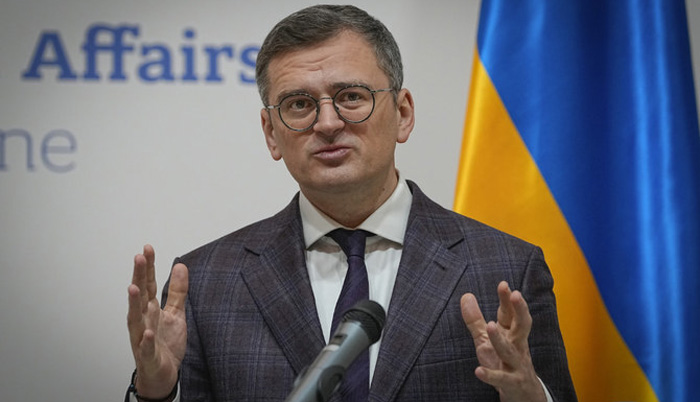India matters, would like to have it on board for peace summit: Ukraine FM
Ukraine is looking forward to India’s participation in a peace summit to be hosted by Switzerland this summer as its backing will help convince other countries, especially in the Global South, about the initiative, Ukrainian foreign minister Dmytro Kuleba said on Thursday.
Kuleba, who is on a two-day visit to New Delhi at the invitation of his Indian counterpart S Jaishankar, said India could become the first non-Western power to support President Volodymyr Zelenskyy’s 10-point peace formula aimed at ending the conflict triggered by Russia’s invasion in February 2022.
“India can take the lead to become the first major non-Western power to openly support the summit on President Zelenskyy’s peace formula. The conversation with Russia can begin one day, and India can be well placed in this process,” Kuleba told Hindustan Times during an interaction with a small group.
“If India wants to lead, it has to move. Having India’s confirmation of support for the peace formula will mean having a big player on board. India is a voice that matters to others, especially in the Global South, and it will help to convince them,” he said.
Kuleba added: “India matters and we would like to have it on board. It will add legitimacy to the international efforts and bring other countries on board.”
The peace summit, the dates for which are yet to be announced by Switzerland, is set to top the agenda of Kuleba’s meetings with his Indian interlocutors on Thursday. Besides a meeting with Jaishankar to co-chair the India-Ukraine inter-governmental commission, Kuleba will meet deputy national security adviser Vikram Misri.
Issues related to the bilateral partnership and cooperation on regional and global issues of mutual interest will also figure in these meetings, the external affairs ministry said.
India has refrained from publicly criticising Russia’s invasion of Ukraine, though it has consistently backed dialogue and diplomacy aimed at ending the conflict. New Delhi has also often raised the fallout of the conflict on prices of food, energy and fertilisers and how this has impacted countries in the Global South.
During separate phone calls with Russian President Vladimir Putin and Zelenskyy on March 20, Prime Minister Narendra Modi reiterated that dialogue and diplomacy is the way forward in the Russia-Ukraine conflict and that India backs all steps for the early and peaceful resolution of issues between the two sides.
Kuleba acknowledged the legacy of India’s long-standing relations with Russia and said New Delhi could pick one or two topics from Zelenskyy’s peace formula, “possibly the return of children and the prisoners of war as well as energy security”.
The peace formula has been envisaged in such a way that Ukraine’s rights are protected and countries can opt to back any of the 10 points of the formula that was first suggested by Zelenskyy at the G20 Summit in Bali in 2022.
This formula envisages, among other things, restoration of Ukraine’s territorial integrity, withdrawal of Russian troops, formal confirmation of the end of war, release of all prisoners, and radiation and nuclear safety, especially in the context of the Zaporizhzhia nuclear power plant.
Since last year, four meetings of security officials and political advisors of dozens of countries have been held on Zelenskyy’s peace formula, and India has sent middle-ranking diplomats or the deputy national security adviser to most of these meets. National Security Adviser Ajit Doval was the most senior Indian official to participate in these meetings when he addressed a gathering hosted by Saudi Arabia last August.

